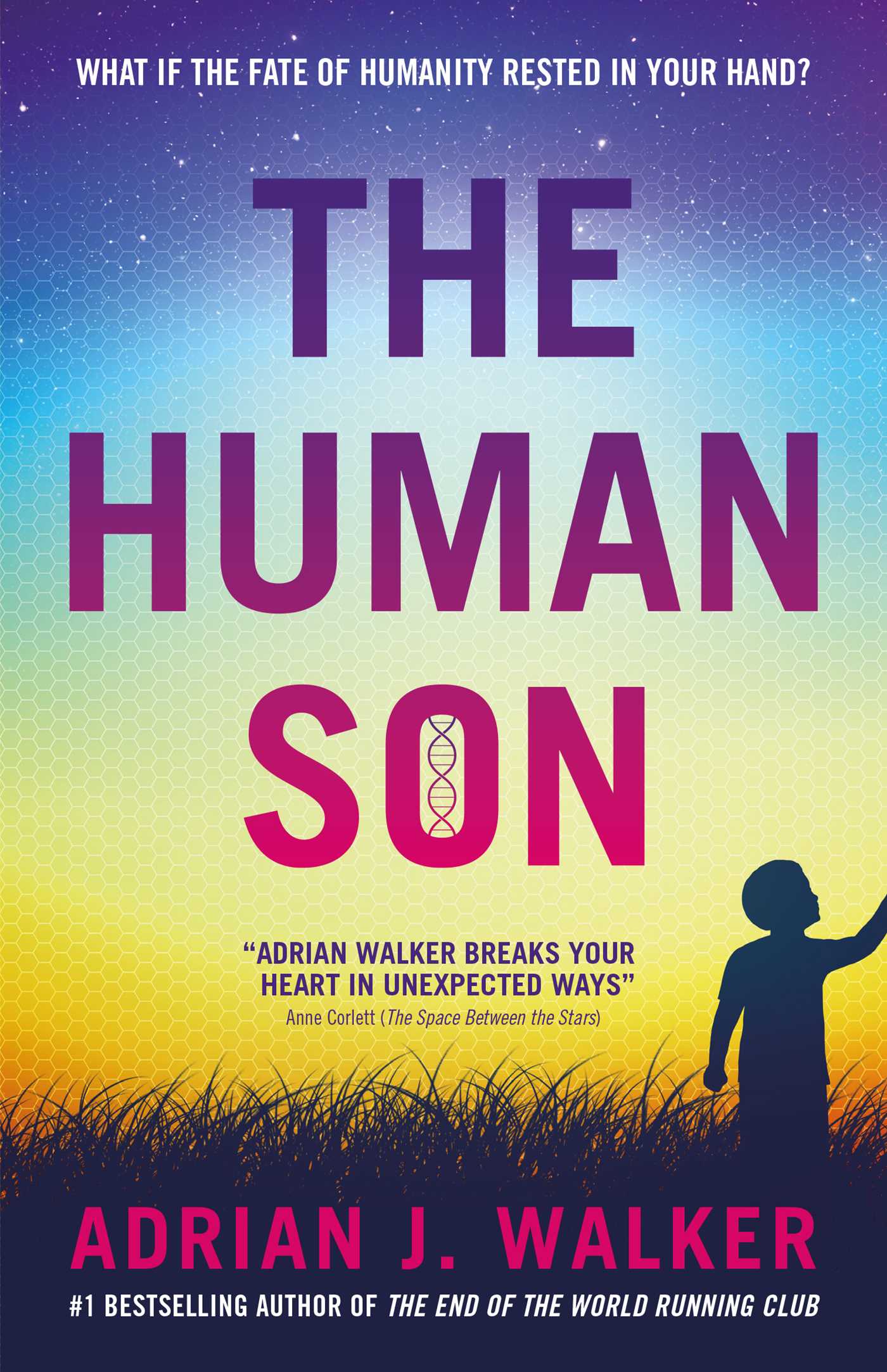Note: this review first appeared on Storgy.com
The Earth is healed and humans have been extinct for 500 years. Those two things are connected. In the dying days of human civilisation a scientist created a better species, the Erta. Human-like but with none of their physical and emotional flaws. They are walking problem solvers with one purpose – to fix the Earth. Now that their job is done they have no purpose and with to move and transcend to a higher level of consciousness. But they made a promise to reintroduce humans. Ima, the Erta who fixed the sky is the one charged with raising a single human child, a boy, to prove that humans can be trusted again. In doing so Ima, the rational, clear thinking Erta who fixed the atmosphere, gets far more than she bargained for.
This is the jumping off point of The Human Son, the latest offering from Adrian J Walker, best selling author of The End of the World Running Club and The Last Dog on Earth. This novel is a departure from the dystopian into Utopian science fiction, and like all great science fiction it uses the canvass of the far future to paint a philosophical meditation on humanity. And like all good Utopian novels, the idyl isn’t what it seems.
Adrian J Walker is great at building characters that take you on an emotional journey. Ima is no different. Her struggles with child raising are at times hilarious viewed from the point of view of a purely rational being, born fully formed with a clear purpose. This humour is balanced against the tragic, something Walker does sublimely well in all his novels.
There were deft little touches of darkness secreted early in the story which pay off later. The rationalism of the Erta by their own words is benevolent, but immediately made me think of all those rationalist projects of the Enlightenment which claimed as much: Neoliberalism, Marxism, Nazism and Jihadism (following the philosopher John Gray’s line of thinking). Marxism being the most brutal of all on its body count, and yet alongside the most benign rhetoric. The Erta think of life as an equation that needs balancing, and Ima’s journey is to solve an irresolvable sum. In this lacuna sits the Kirkegaardian truth of paradoxes and is the playground of A Human Child.
There are other ideas played with in the narrative. Rewilding, the Singularity and Simulation Theory to name a few of the main ones. All of them are seamlessly woven into the world building to serve the story.
I loved the use of science to build and rip down Ima’s world view, and there are some delightful imaginings of this far future. The quantum telescope was my favourite. I’ll not spoil it for you, but the idea is still with me and I could see it developing a story all of its own.
If there is a difference to Walker’s other novels, apart from a departure from the dystopian (and if we exclude his excellent self-published novels), it is that this is more of an inward journey. That is not to say there is no action. There is, lots. And it is not to say his other novels lacked emotional depth. They do not; they have oodles of it. I mean in the relative balance between the two. This felt like a more inward looking meditation, especially in its emotional beats. A Human Son is most definitely an Adrian J Walker story, and if you loved his other work you’ll love this too. But it isn’t more of the same either. Are there flaws? That is a subjective thing. I would personally have tightened up the action pace of the final act. But this is a minor quibble, and shouldn’t misdirect you in thinking that the final act doesn’t deliver. It does, with emotional resonance and suspenseful resolution.
In sum, The Human Son is a novel of emotional depth and maturity, handled by a writer at the top of his game, tackling philosophical topics with page turning effortlessness. If it doesn’t get nominated for the Nebula Award, then there really is something wrong with humans and the Erta might have a point.
The Human Son is published by Solaris:


